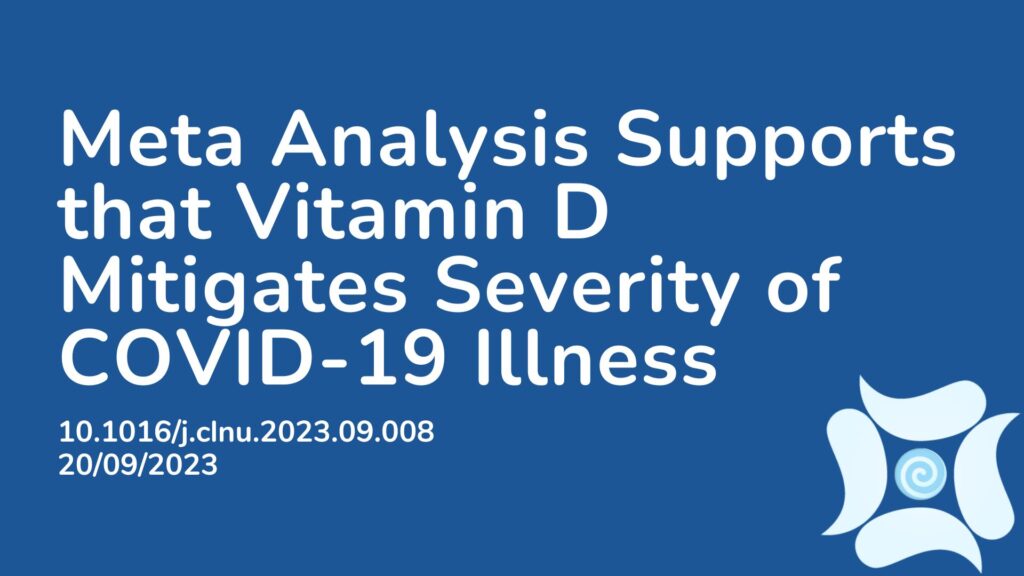Summary:
COVID-19 can spread rapidly and be life-threatening, imposing a substantial threat to public health. Vitamin D, a cholesterol-derived steroid hormone, influences the expression of various genes, particularly those within immune cells. The efficacy of vitamin D supplementation in managing COVID-19 remains a topic of debate. Studies have revealed that low levels of vitamin D are associated with a higher risk of respiratory infections and prolonged COVID-19 infections, however there is currently no meta-analysis focusing on the preventive potential of vitamin D in COVID-19. This study aimed to conduct a meta-analysis to investigate the role of vitamin D supplementation in both preventing and treating COVID-19. The authors identified 25 eligible papers involving a total of 8,128 participants. The findings showed that vitamin D supplementation may offer some potential benefits in mitigating the severity of illness caused by COVID-19, particularly in individuals with vitamin D deficiency, but further research is warranted.
Abstract:
Background: Vitamin D (VitD) has been shown to be important for the immune response of the respiratory system, but the preventive and therapeutic effects of vitamin D supplementation on SARS-CoV-2 infection are controversial. This study aimed to determine the role of vitamin D supplementation in the prevention and treatment of SARS-CoV-2 infection through a meta-analysis of randomized controlled trials. Methods: The databases of PubMed, Cochrane Library, Embase, Web of Science and Google Scholar were searched systematically from inception to April 17,2023 to identify trials involving a randomized comparison of vitamin D supplementation versus non-vitamin D supplementation for SARS-CoV-2 infection prevention or treatment. Results: We retrieved 25 eligible trials, including 8128 participants. Four trials compared the preventive effects of vitamin D supplementation on SARS-CoV-2 infection, and the results (RR 0.31; 95%CI 0.07 to 1.32) were inconclusive. Regarding the treatment of SARS-CoV-2 infection with vitamin D supplementation, it was found that vitamin D supplementation could significantly reduce the rates of ICU admission (RR 0.63; 95%CI 0.44 to 0.89) and mechanical ventilation (RR 0.58; 95%CI 0.39 to 0.84), but had no statistically significant effect on mortality. However, in subgroup analyses based on the patients’ specific conditions, vitamin D supplementation significantly reduced the mortality in patients with vitamin D deficiency (RR 0.76; 95%CI 0.58 to 0.98). Conclusion: Vitamin D supplementation may have some beneficial impact on the severity of illness caused by SARS-CoV-2, particularly in VitD deficient patients, but further studies are still needed.
Article Publication Date: 20/09/2023
DOI: 10.1016/j.clnu.2023.09.008




